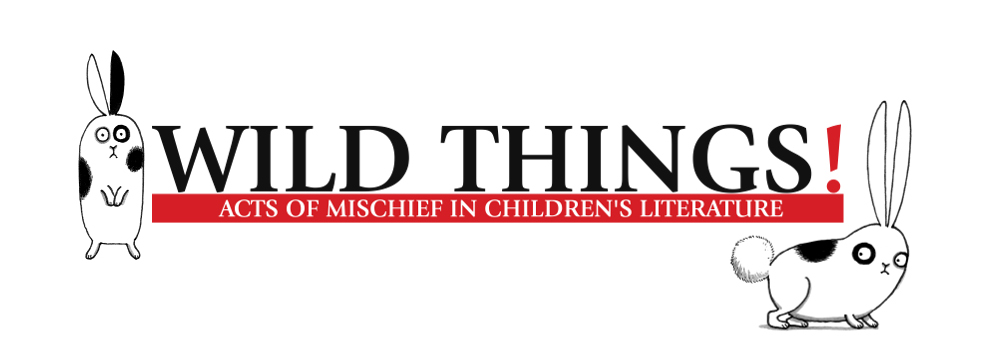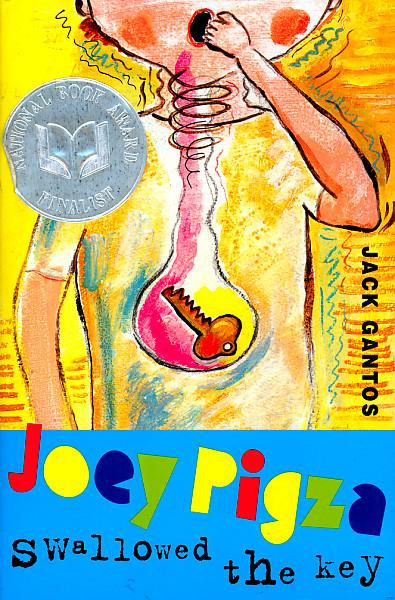“You’re Dead Meat, Mr. Lewis”
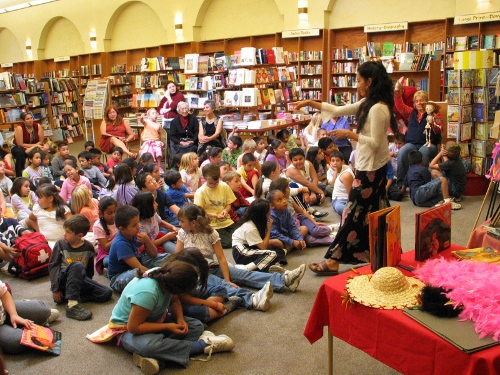
Children’s literature may be the only genre in which authors are expected to head out with their bag of tricks and become an entertainer of sorts — talking to kids, doing their dog-and-pony show at an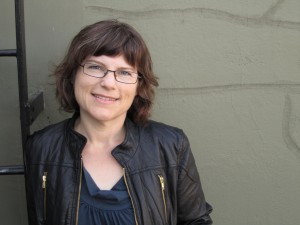 y number of public libraries, children’s book festivals, and schools — whether they feel prepared for it or not. “When you write for younger readers,” says author Sara Zarr (pictured left), “it seems like there’s an expectation that suddenly you’re not only a writer, you are or should be a child advocate, a child psychologist, a teacher, an expert on whatever social problems that might crop up in your books, a protector of innocence while also being an activist for intellectual freedom, someone with a message but who shouldn’t preach, responsible for representing all races and cultures…the list goes on. Writers who write specifically for an adult audience don’t seem to have all of these extra layers of expectation put on them — they’re simply allowed to tell whatever story they want to tell.”
y number of public libraries, children’s book festivals, and schools — whether they feel prepared for it or not. “When you write for younger readers,” says author Sara Zarr (pictured left), “it seems like there’s an expectation that suddenly you’re not only a writer, you are or should be a child advocate, a child psychologist, a teacher, an expert on whatever social problems that might crop up in your books, a protector of innocence while also being an activist for intellectual freedom, someone with a message but who shouldn’t preach, responsible for representing all races and cultures…the list goes on. Writers who write specifically for an adult audience don’t seem to have all of these extra layers of expectation put on them — they’re simply allowed to tell whatever story they want to tell.”
Not that Sara doesn’t enjoy school visits. (See below, in fact.) But even authors who enjoy them (and book signings, sometimes a whole other ball of wax) would probably admit to the pressure of which Sara speaks. Plus, well … two words: Fire. Drills. Authors who pen books for adults don’t necessarily have to worry about such interruptions on a regular basis. “A fire drill alarm going off in the middle of an assembly can quickly turn a poetic moment into a memorable event,” confirms children’s poet Charles Ghigna. Nor do they typically speak in gymnasiums, what author Carole Boston Weatherford tells us below is the worst possible venue — but seems to be the most popular one for children’s book authors.
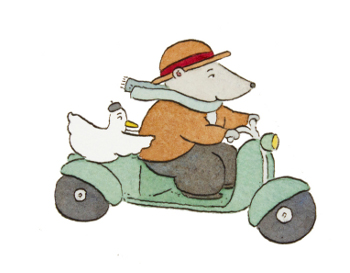
There are those who speak in only glowing terms of things like school visits. Author-illustrator Tim Egan says, “They’re one of my very favorite things to do. I love hearing what kids think and showing them how books are made. Mostly, I love drawing for them, because they sometimes applaud when I’m finished. I do a slide presentation and talk all about the mistakes I make in both writing and illustrating, and they seem relieved to know that I make so many mistakes. It’s also fun getting them all excited and worked up. Then, just as their screaming reaches a crescendo, I leave. Great fun!”
And fans of Newbery Medalist Jack Gantos’ award-winning Joey Pigza novels know that, if it weren’t for author visits, we wouldn’t have Joey’s stories. Here’s how Jack put it in an essay over at Scholastic:
I got the idea for Joey Pigza when I was visiting a school in Pennsylvania, talking about writing. This kid was sitting in the front row (teachers tend to put the really active kids in the front) spinning around on the seat of his chair. He was really smart and having a blast. I would start to tell a joke, and he would figure out the punch line and say it before I could. He was finishing my sentences! He was having fun, but then he changed. He became quite worried. ‘Teacher, teacher!’ he called out. ‘I forgot to take my medication!’ She pointed to the door and out he ran. I could hear him slapping every locker as he ran down the hall to the nurse’s office.I’d known kids like this when I was a kid. We moved 40 times when I was growing up, and I was always changing schools. Because I was never in one place very long, I didn’t make a core group of friends. So, I ended up hanging out with the unusual kids. Some of these kids were very, very active. I liked them because they were smart and funny and clever and didn’t appear to have any dull moments in their lives.
So, the spinning, locker-slapping Pennsylvania kid brought back some memories. I still write and draw in my journal every day. And when I got home from my school visit, I wrote a description of the ‘active’ boy in the front row. The next day, I read it and liked it, so I wrote more. And Joey Pigza was born!
But no matter how you feel about school visits, working with children requires a moderate amount of flexibility — and sometimes things just don’t go as planned.
When we began (the first draft of) Wild Things! about five years ago, we composed a list of a dozen offbeat questions, which we submitted to several hundred contemporary authors and illustrators of children’s books. Among the questions were:
- What is the bravest thing you’ve ever done in creating a book?
- Have you ever “slipped something past” your editor?
- Is there anything about you that your readers would be shocked to know?
- Do you ever put “inside jokes” in your books? Have you ever used a book
to send a secret message, declare your love, or settle a score?
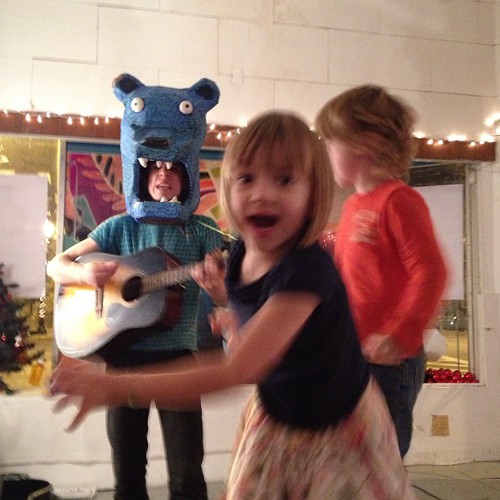
The responses to these questions—which ranged from insightful to comical to “I’d tell you, but then I’d have to kill you”—added color and excitement to our work, as we began to explore the always-evolving world of children’s books.
One of those questions?
- If you do school visits, do you have any school-visits-gone-terribly-wrong stories?
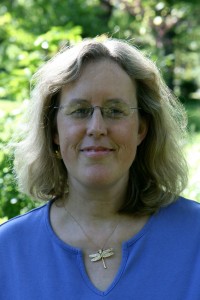
Today’s post shares some of the stories we received, since none of the school-visit stories (with one exception) made it into our book. Now, if we posted all the ones we received, we’d be here all day, so these are just some. We’d certainly love to hear from other authors and illustrators with their most dramatic tales — both horror stories and delights are welcome. So, leave your stories in the comments, if you’re so inclined!
“School visits are always a dream,” April Pulley Sayre told us, before adding, “Do you mean the one where all the electricity went out and I gave my talk in the dark? Or the student-projectile-vomiting one? Or the one with the tornado drill in the middle of the talk? Or do you mean the one where the school bus smashed my car in the parking lot while I was in the school talking?”
Many children’s book creators can see the humor in hindsight. Poet J. Patrick Lewis recalled an incident in which a fourth-grader stood up at an assembly and asked him if he owned lambs:
‘I own two lambs,’ she said. ‘I showed them at the County Fair last week, and I won two blue ribbons.’
‘That’s wonderful!’ I told her.
She said, ‘Do you know what their names are? Patrick and Lewis.’
Be still my heart, I was nonplussed. I didn’t know what to say.
Then, without skipping a beat she said, ‘We had Lewis for dinner last night.’
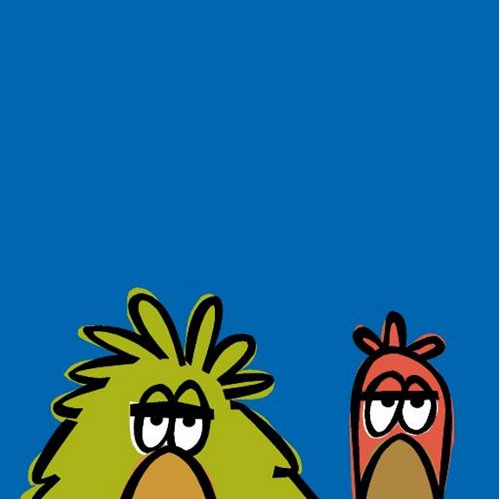
And speaking of food, author/illustrator Jan Thomas learned there is no point in trying to bribe your audience with goodies: “There was the time I decided to take muffins to a school visit. I researched and baked the healthiest muffins ever. I handed them out and one little girl took a bite and raised her hand. ‘Do I have to eat this?’ she asked. ‘No, you may throw it away,’ said the teacher. Soon other hands went up. ‘We don’t like our muffins either.’ ‘You may throw them away,’ said the teacher. More hands went up. ‘Anyone who does not want to eat their muffin may throw it away.’ The whole class got up and threw away their muffin (except for my son). My son ate his muffin. Bless his heart.”
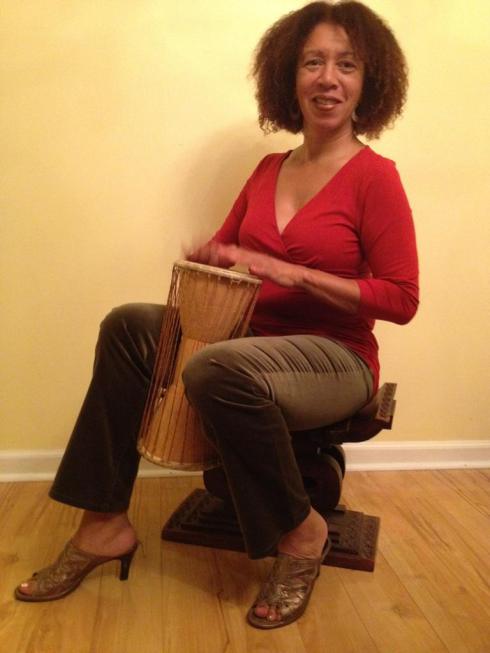
Author and poet Carole Boston Weatherford thought she knew everything there was to know about school visits – but hadn’t considered the caterpillars: “Having presented to schools for more than fifteen years, I know what works and what doesn’t. With cavernous dimensions, poor acoustics and a playground atmosphere, the worst venue for a school visit is a gymnasium. The worst time for a presentation is late afternoon, especially for students in primary grades. The worst day for a school visit is Friday. And if that Friday also happens to be the day before break, you have a literary perfect storm. Those elements came together once when I was visiting a school in Eastern North Carolina. Not only was it a Friday and the last day of school before spring break when kindergarteners filed into the gymnasium at 2 p.m. The day also marked the culmination of a fascinating science project. Minutes before my presentation, the children had released the butterflies that they’d grown from caterpillars. Outdoors, of course. But the insects might as well been flitting around the gymnasium. Hard as I tried, there was no settling the giddy crowd. I, for one, felt like flying away or containing them all with a giant butterfly net, if such a thing had existed. I had experienced butterflies before. But never ever so literally.”
Author and poet Michael J. Rosen learned that butterflies are no big deal compared to butt trampolines. He described an event for kindergarten, first and second graders, unfortunately held in a university auditorium with fold-down seats …
… like a giant clam facing upward on the ocean floor, the two cushions clamped together. So here are these eager 40 and 50 pound kids trying to pry the seat downward (or waiting for a teacher to help) and then jump on immediately to keep it from snapping closed. Many didn’t have the requisite weight to keep the seats down, and found themselves folded in half, their knees up by their elbows. Others, of course, found the spring-loaded seat offered a miniature launching pad, or a ‘butt trampoline,’ as I wrote on my evaluation, suggesting that ‘next year’s’ facility should provide seating that doesn’t offer a combination of listening to a presentation and being at recess. Which left about 12 or 15 minutes for my presentation. I’m looking out at an utterly surreal scene: 75 kids, pinched into place, feet hanging forward and far from the floor, as if they were being sucked down by the suddenly hungry seats. Microphone, slides, funny voices, jokes, ‘LIVE’ drawing—but the spring-loaded pressure and pinching continued right along with my presentation. I was no competition for the completely engaging, enthralling auditorium seats.
Maybe a well-placed dirty word would have gotten their attention. It worked for Meghan McCarthy. “I was taking a break from my school talks and eating a quick lunch, as some volunteers were setting up my laptop for the next talk in the auditorium upstairs. Soon, after plugging in my laptop to the projector, a four-letter word was projected very largely on the wall in front of hundreds of children. I have a black and white series of photographs I took of abandoned spaces that I use as my screen saver. In one of the photos there is profanity spray-painted in the background. Immediately after projection, a child started tugging at the teacher’s leg and pointing toward the wall. Soon, from what I was told, many kids started pointing and chanting the swear word….Luckily for me, everyone involved was very good-natured about the situation.”

Author and illustrator Jeremy Tankard had a similarly surreal experience during an author visit: “I gave a short talk about Grumpy Bird and Boo Hoo Bird and how I was writing these books about emotions. I mentioned that Bird was a lot of fun to write about, because his emotions were so over-the-top. While signing, a woman came up to me and said, ‘You’ve got to be careful writing about this Bird and all his emotions. People are going to think he’s a homosexual!’ ‘Really?’ I said. ‘Oh, yes,’ she says to me, ‘There are some really crazy people out there!’ I looked her in the eye and said, ‘Yes. Yes there certainly are!’ When she had left, my publicist turned to me and asked if she had actually just heard someone say that. Ah, good times. As an author you really get to meet all kinds.”
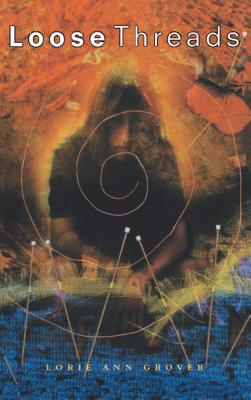 And we’ll leave you with one final example that shows why cautious adults probably don’t need to be quite so wary. When YA author Lorie Ann Grover’s first verse novel, Loose Threads, was released, she went to speak to fifth and sixth graders at a school library. About five minutes prior to her talk, as children filed into the library, the librarian pulled Grover aside and asked her to avoid using the word “breast” when presenting to the children. When the shocked author responded that her book was about breast cancer, the librarian answered, “Yes, well, feel free to speak of the cancer, just don’t mention where it was.” After the students were gathered, Grover discussed the novel, adding “and this novel is about my grandmother who had cancer.” A hand shot up without hesitation: “Where was her cancer?” Grover recalls: “’Um,’ I stalled. ‘In her chest?’ Leave it to the kids. He answered. ‘My grandma has breast cancer, too.’”
And we’ll leave you with one final example that shows why cautious adults probably don’t need to be quite so wary. When YA author Lorie Ann Grover’s first verse novel, Loose Threads, was released, she went to speak to fifth and sixth graders at a school library. About five minutes prior to her talk, as children filed into the library, the librarian pulled Grover aside and asked her to avoid using the word “breast” when presenting to the children. When the shocked author responded that her book was about breast cancer, the librarian answered, “Yes, well, feel free to speak of the cancer, just don’t mention where it was.” After the students were gathered, Grover discussed the novel, adding “and this novel is about my grandmother who had cancer.” A hand shot up without hesitation: “Where was her cancer?” Grover recalls: “’Um,’ I stalled. ‘In her chest?’ Leave it to the kids. He answered. ‘My grandma has breast cancer, too.’”
And here are a handful of other stories we just couldn’t pass up:
- “Do you know why I’m having you put the date next to all your signatures? Someday you’re going to pass away. Then these will be worth a fortune.” – A fifth-grade student to visiting author/illustrator Aaron Zenz
- “Do not wear a mini skirt to do elementary visits. They will make you sit on those teeny tiny chairs. I will leave the rest to your imagination.” – Author Emily Jenkins
- “My worst is a stand-up fifteen minute routine I can’t boil down easily. It was a week in Denton, Texas, which included, among other things, a child throwing up on my boots, the head of one school’s PTA leaving town so as not to have to talk to me (she disapproved of one of my stories), and a dead baby duck.” — Author Jane Yolen
- “I’ve had all my jokes flop, and I’ve had to stand there drenched in flop sweat.” – YA author Brent Hartinger
- “I’ve never done a school visit. I live in fear of doing one because I’m a little scared of kids. I don’t have any of my own, and I was never around them growing up, which apparently is true of a lot of children’s book authors (Dr. Seuss, for example!), and also I have a horrible tendency to swear when I’m nervous, so any readings that involve kids has me saying to myself, over and over again, in my head, ‘Don’t swear, don’t swear, don’t swear, don’t….’ I was incredibly relieved to learn that Neil Gaiman also has this problem.” — Author-illustrator Ursula Vernon
- “Once at a school visit, I was struck by the scariest phrase of all time: ‘I have the swine flu!’ said by little girl as she’s hugging me.” — Author Tammi Sauer
- “Most of my school visits are grades 1-5, but there was the time I was asked to talk to a group of preschool four-year-olds. Since it was October, I decided to start with a reading of my book Oh No, Not Ghosts! The kids were all gathered right near my feet, and when I came to the lines ‘I’ll scare you with a BOO!’ I roared my BOO and made my scariest werewolf face. The boy closest to me started bawling and tried to run out of the room, but he fell over the girl next to him, and gave her a bloody nose. She started crying as well, and by the time the parents came to pick up their kids, just about every one of the children were crying at the top of their lungs, and the parents were looking at me like I was evil incarnate. Then there was my talk at a Jewish Community Center in a bad neighborhood. The first thing I was told when I walked in the door was that there had been two drive-by shootings in the last month, and I should make sure I didn’t walk in front of the windows during my talk (which, I am pleased to report, went well — and I am still here).” — Author and poet Richard Michelson
- “Thankfully, I’ve never had a school visit go terribly wrong, though I’ve had plenty of dreams about the experience. In one vivid and awful dream, I am wearing a plaid flannel nightgown while trying to restore order to a roomful of 400 middle schoolers run amok. And in another, I am speaking gibberish to a kindergarten full of adults, who stare at me with pity and dismay.” – Author-illustrator Elisa Kleven
Let’s bring things full-circle with YA author Sara Zarr again, whom we feel summarizes the whole experience well:
The school visits you do while on tour, for free, tend to be landmines of potential awkwardness and humiliation. I’ve had fourteen-year-old boys attempt to flirt with me while I’m giving a talk, kids fall asleep, teachers forget that I was coming…the usual…. But, I have to say, at even the worst visits or events, there is always one interaction with a kid, a librarian, a parent, a teacher, or a bookseller that makes it all worthwhile.
Take that, butt trampolines.
Sources
Danielson, Julie. “Seven Questions Over Breakfast with Tim Egan.” Seven Impossible Things Before Breakfast. 11 August 2011. <http://blaine.org/sevenimpossiblethings/?p=2184>.
Gantos, Jack. “Writing What I Know & Finding Joey Pigza.” Scholastic website. Undated. <http://www.scholastic.com/teachers/contributor/jack-gantos>.
Ghigna, Charles. Email interview. 6 September 2010.
Grover, Lorie Ann. Email interview. 27 August 2009.
Hartinger, Brent. Email interview. 6 September 2010.
Jenkins, Emily. Email interview. 17 September 2009.
Kleven, Elisa. Email interview. 7 September 2010 and 6 July 2014.
Lewis, J. Patrick. Email interview. 16 August 2009.
McCarthy, Meghan. Email interview. 19 August 2009.
Michelson, Richard. Email interview. 2 and 3 February 2010.
Rosen, Michael J. Email interview. 11 February 2010.
Sauer, Tammi. Email interview. 2 September 2010.
Sayre, April Pulley. Email interview. 16 August 2009.
Tankard, Jeremy. Email interview. 24 January 2011.
Thomas, Jan. Email interview. 4 September 2009.
Vernon, Ursula. Email interview. 1 November 2010.
Weatherford, Carole Boston. Email interview. 17 November 2010.
Yolen, Jane. Email interview. 18 August 2009.
Zarr, Sara. Email interview. 2 September 2009 and 3 September 2010.
Zenz, Aaron. Email interview. 9 August 2011.
